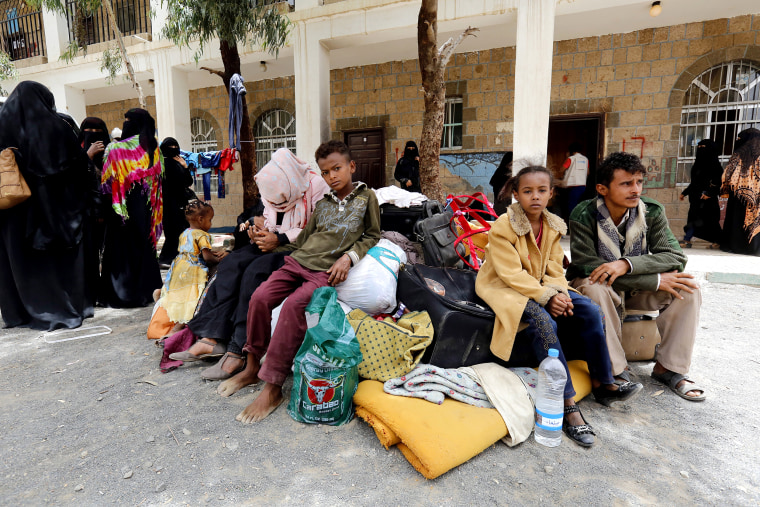WASHINGTON — The Trump administration said Thursday that Yemenis granted special immigration status in the U.S. after an escalating civil war can keep the designation, making them among a shrinking group of people from countries wracked by violence and natural disaster to have permission to remain in the country.
Yemen was first designated for the special status in 2015. The civil war reached new levels last year — the United Nations said at least 10,000 civilians were killed and more than half the country had a serious food shortage. Homeland Security Secretary Kirstjen Nielsen said in a statement that the armed conflict and extraordinary conditions support the need for continuing the designation. But the administration will not take on new applicants.
Those already with the status — nearly 1,250 — will be able to remain in the U.S. and will be allowed to work until at least March 3, 2020.
International Rescue Committee, a humanitarian group, called it a relief that the Trump administration was extending the designation for some Yemenis but said that placing an "arbitrary date on eligibility" could force some Yemenis to return to deadly conflict.
"The situation here in Yemen remains dire," said IRC Yemen Country Director Frank McManus. "To risk sending Yemenis back to an active war zone where the majority of the population lacks adequate food, clean water and basic health services would put innocent lives in immediate danger. Yemen is the largest humanitarian crisis in the world."
Around 437,000 immigrants from 10 countries have had temporary protected status, a designation created in 1990 to allow people from countries ravaged by natural disasters like earthquakes or man-made disasters like war to have a short-term safe haven.
Those with the status generally have permission to work and can travel outside the U.S. and return.
Countries are added to the list as circumstances warrant, with renewals coming usually around every 18 months. While some countries have been removed quickly, others have stayed on it for years. Critics say that turns the program into default amnesty.
President Donald Trump, who wants to curtail legal immigration and has been cracking down broadly on illegal immigration, and other advocates of tighter immigration policies note that the protections were never meant to be permanent.
The administration has terminated the program for Sudan, Nicaragua, Nepal, Haiti and notably El Salvador, which accounted for more holders of the special status than any other nation. Several groups are suing to stay in the U.S.
The protections were extended for 6,900 Syrians, but no new applicants are being accepted.
Decisions are pending for South Sudan and Somalia, affecting a few hundred people.

